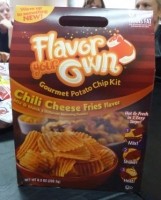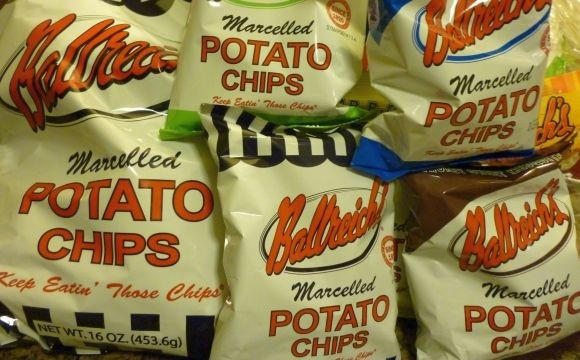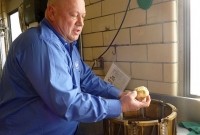Ballreich Potato Chips: Microwaveable innovation on a tray: Flavor your own!
Next up was Ballreich Potato Chips, a family-owned operation in Tiffin, which has been making potato chips since 1920 and is now run by Brian and Linda Reis (third generation) and their children (fourth generation). It supplies retailers in Ohio, Michigan and parts of Indiana, and has just launched a successful line of sweet potato chips.
Brian Reis, who bought the firm outright in 2006 in a leveraged buyout - something he said the banks wouldn't even contemplate letting him do today - says sales have doubled since he took over to $9m.
Right now, he has plenty of room to grow (and a lot of ideas) but is struggling to make further progress without a major injection of capital.
"The problem is that the banks are not lending anymore, and I don't want to give away a stake in the business to an outside investor", he says.
"However, unlike a lot of regional companies trying to compete with Lay's, we're still here. We're still in the ballgame."
There are lots of things on the priority list right now, but a key focus is finding a replacement for the partially hydrogenated soybean oil (a source of artificial trans fats) that the company uses to fry some of its products.
With the FDA's recent crackdown on PHOs and pressure from key customer Walmart to phase out PHOs by 2015, Ballreich's has been experimenting with several alternatives for three years but not found anything that quite does the job just yet, he says.

Mix, shake, heat...
One of the most interesting opportunities that has been thwarted somewhat by the lack of access to funding is an innovative 'flavor your own' concept (pictured left) developed by director of sales and marketing Haley Thomas, featuring a pack of chips, a variety of flavor packs and a microwaveable tray (made from the box the chips come in).
Users simply add the seasoning of their choice, shake, and heat the chips in the tray for a piping hot snack ideal for parties.
The challenge has been getting the product out into the market and building up some buzz around it without a marketing budget to match, says Reis.
"We've not seen anyone try and do this before. If we had $100m to spend on advertising, I'm pretty sure it would be a hit!"
















